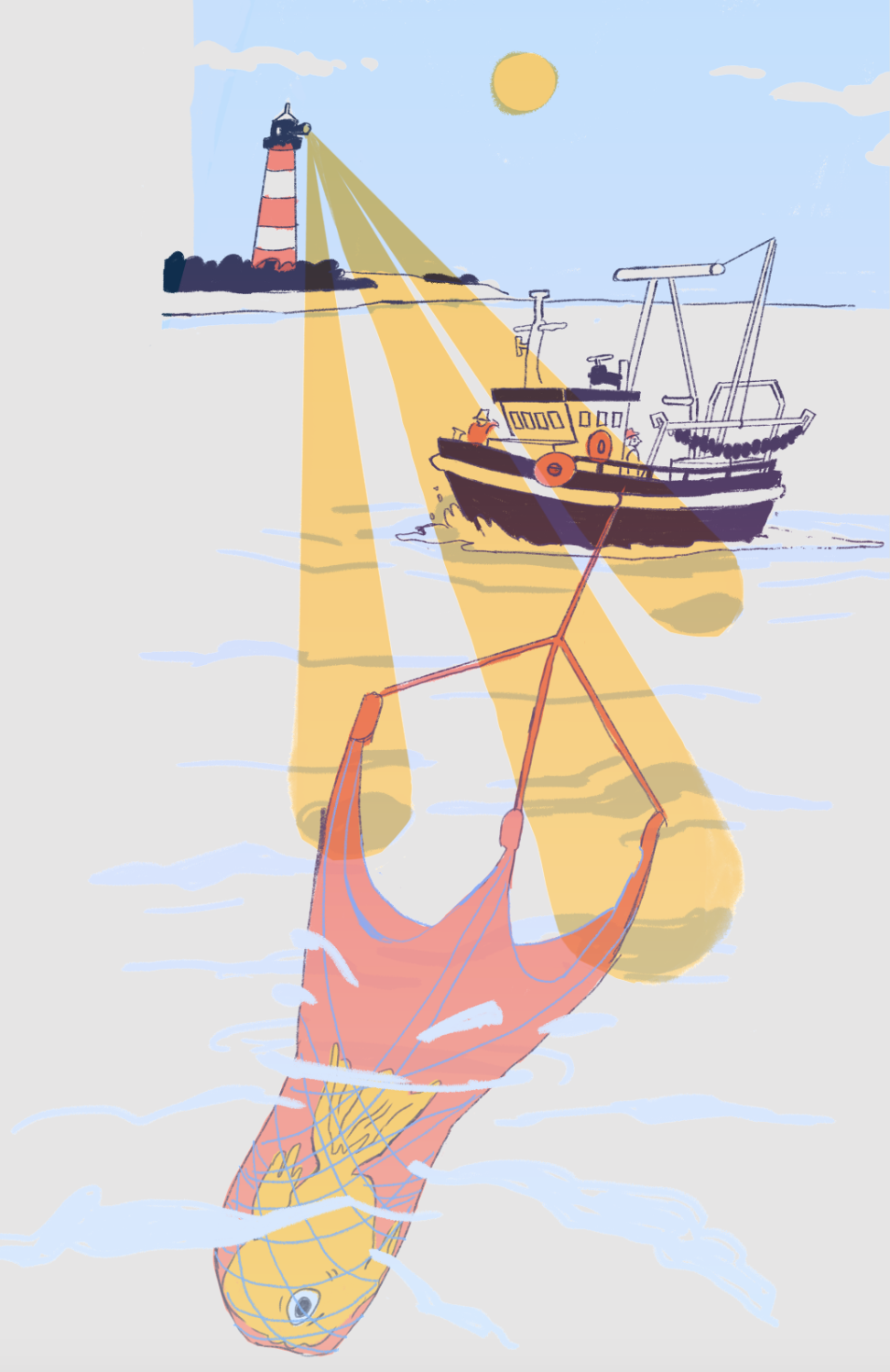It is a difficult time to be a fisher. As global sea levels continue to rise, illegal overfishing is leaving noticeable, harmful dents in fish populations, destroying the ecosystems fishers rely on for their livelihoods. Illegal, unregulated, and unreported (IUU) fishing activities typically occur in waters under national jurisdiction in violation of national and international fishing regulations. The fishing fleets responsible, both state-backed and independent, lack proper authorization and fail to accurately report catches. As fleets put struggling fish populations at risk, national governments are often left unable to prevent or prosecute these flagrant violations of their sovereignty.
IUU fishing fleets’ effects are felt all over the world, from the Philippines to the Caribbean. These fleets often enter fisheries within nations’ exclusive economic zones, overfish local stocks, and leave the marine habitat irreparably damaged. As local fish populations are depleted, the food security of coastal communities comes under threat, leaving them especially vulnerable as climate change negatively alters fisheries in low latitude regions. Developing nations are losing billions of dollars to IUU fishing, as estimates hold IUU fishing responsible for one-fifth of global fish caught. Evidence is also mounting that IUU fishers are using forced labor to carry out their misdeeds. Crews on vessels that engage in IUU fishing are often trapped for years, working in grueling conditions for wages that are withheld and sometimes never paid.
While transnational criminal organizations use IUU fishing to finance illicit activities and nations like Colombia and Spain host corporations that engage in IUU fishing, Chinese corporations are by far the largest perpetrators of the practice. China is home to 8 of the 10 largest companies that engage in IUU fishing and often deputizes its long-range fishing fleets—which have been identified as being involved in IUU fishing—as part of its People’s Armed Forces Maritime Militia. The Chinese government has denied its connection to these fleets while simultaneously using them to its advantage in disputed maritime areas. Consequently, relying on diplomatic persuasion as a solution is difficult.
If fishing communities—both those directly affected by IUU fishing and those affected by IUU fish sales on the world market—are to be protected, quick and effective action must be taken. One way the United States has sought to address the problem is by limiting the amount of IUU fishing stocks in the economy. The logical next step is to expand the Sustainable Import Monitoring Program (SIMP), a seafood traceability program, to include all species of fish, rather than just the 13 that are currently covered. Expanding National Oceanic and Atmospheric Administration enforcement efforts may further prevent the sale of IUU fish stocks on the US market. But these moves will not solve the IUU fishing problem. While the United States is the largest importer of fish in the world, it is only the second largest consumer of fish, behind China. Although IUU fishing will be affected by implementation of these policies, it will be far from eradicated.
While these steps can and should be taken, they will merely absolve the United States of its complicity in the IUU fish trade. To stop global IUU fishing at the source, there must be intimidation of the IUU fishing fleets at the scene of the crime, and prosecution. Additional funding and support should be provided for this mission. The US Coast Guard has shown an interest in combating IUU fishing along coastlines around the world, particularly in the Pacific Ocean. In the short term, the United States must increase its deployment of US Navy vessels with Coast Guard law enforcement authorities to intercept IUU fishing fleets. More broadly, the United States should increase its partnerships with affected coastal states by increasing training, cooperation, and enhancement of their coastal protection and naval forces and investing in multinational IUU fishing interdiction operations.
While idealistic, these policies are urgently needed to prevent further harm. And they are not beyond the realm of possibility: The United States already prioritizes countering Chinese attempts to undermine the international order. Thwarting Chinese long-range fishing fleets engaging in IUU fishing is thus in line with its existing interest. Nations must protect their fishers by moving toward a long-term solution to protect coastal communities, maritime laborers, and ocean habitats.
